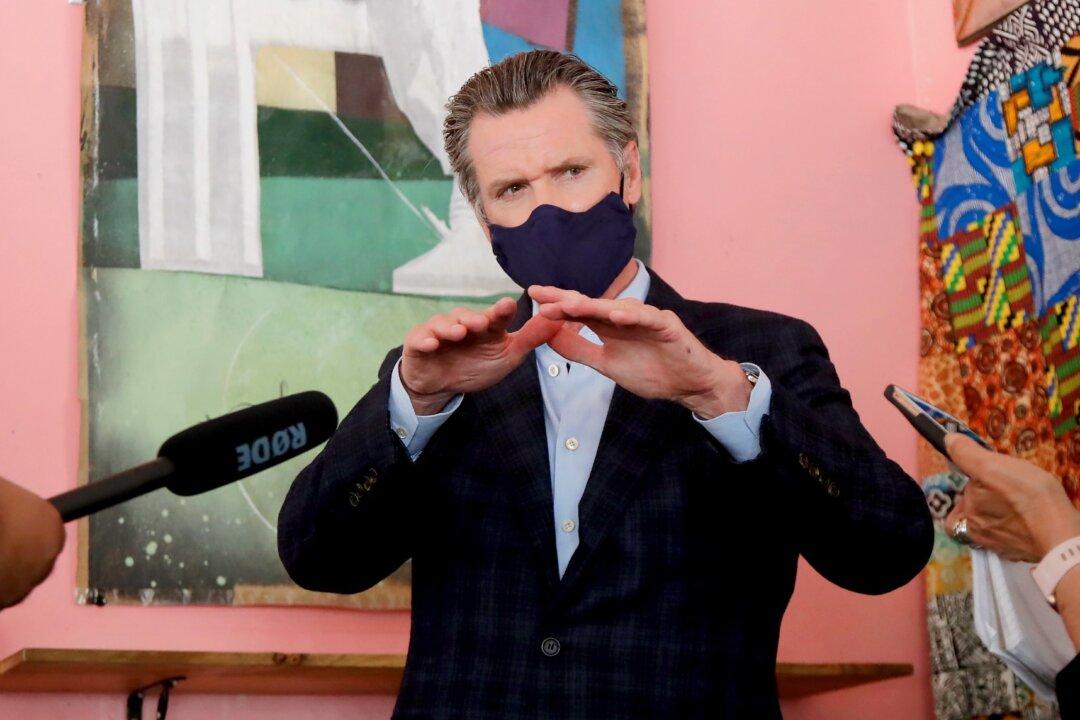California Gov. Gavin Newsom on June 28 ordered the closure of bars in seven counties that have seen a surge in cases of COVID-19.
In a statement, Newsom also recommended that eight other counties in the most populous U.S. state close their bars, as he urged Californians to “remain vigilant” against the CCP (Chinese Communist Party) virus, commonly known as the novel coronavirus.





